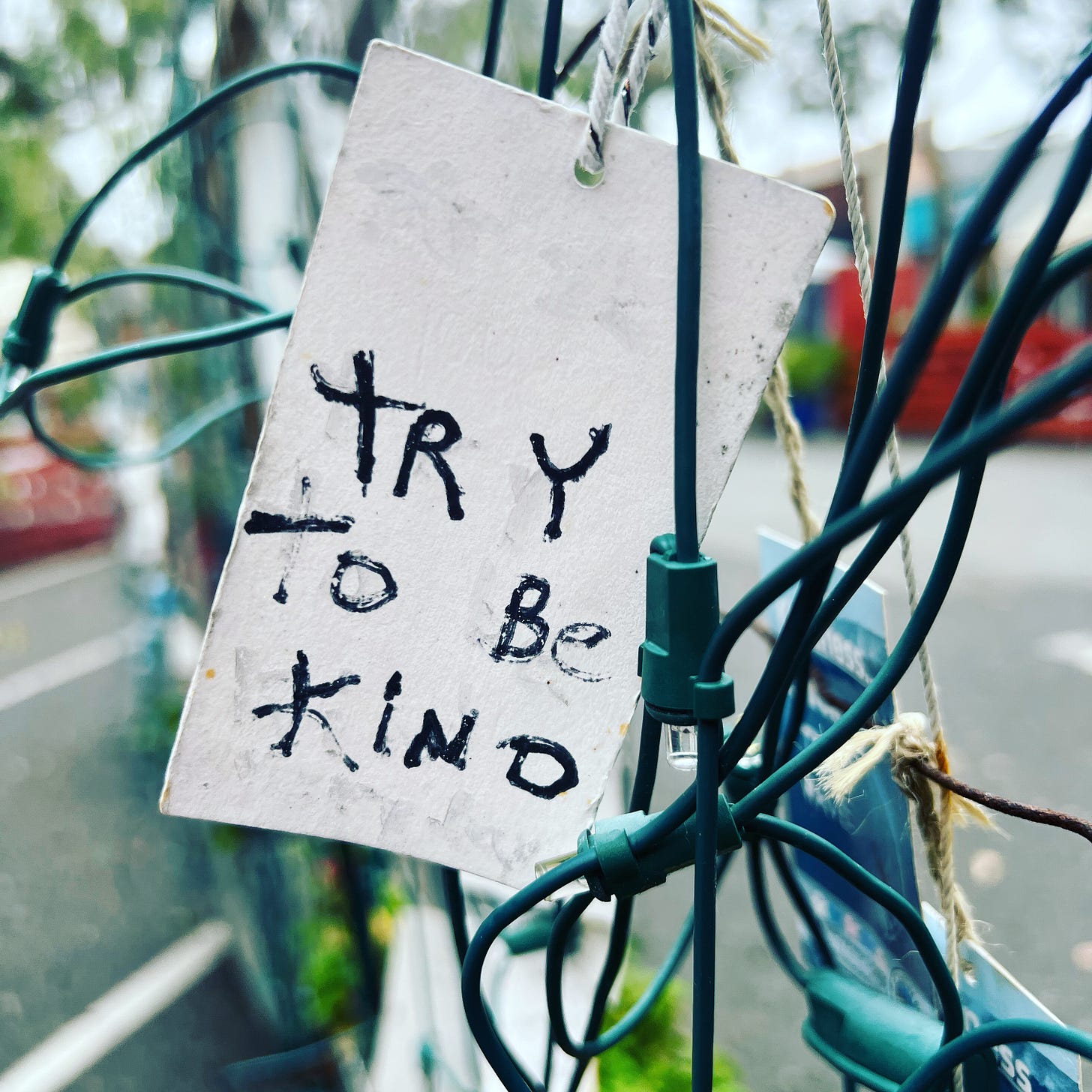Sunday Stories: Cultivating Kindness
To paraphrase the director and screenwriter Richard Curtis: If you look for it, I’ve got a sneaky feeling you’ll find that kindness actually is all around.

“Do you know her?” my son, then nine years old, asked as we were at a stop sign near the bottom of the hill that leads to our house. I had waved at the woman driving the car facing us at the intersection because she had made eye contact, smile…



